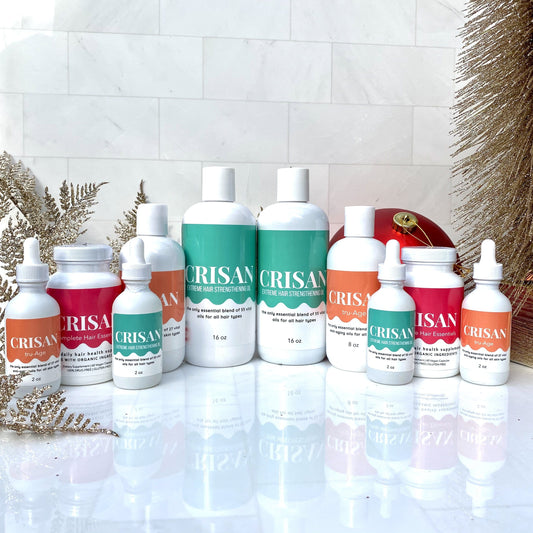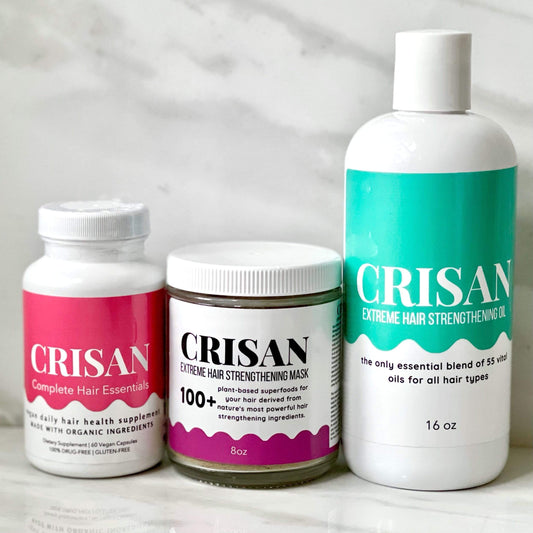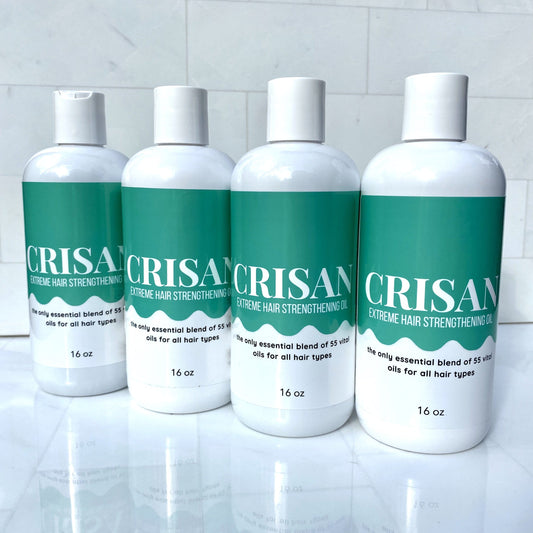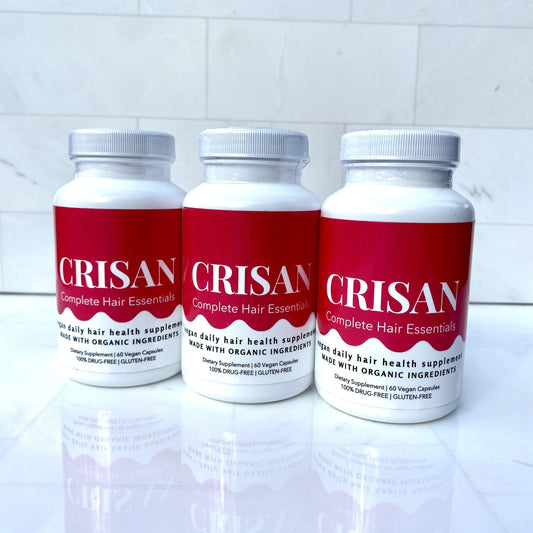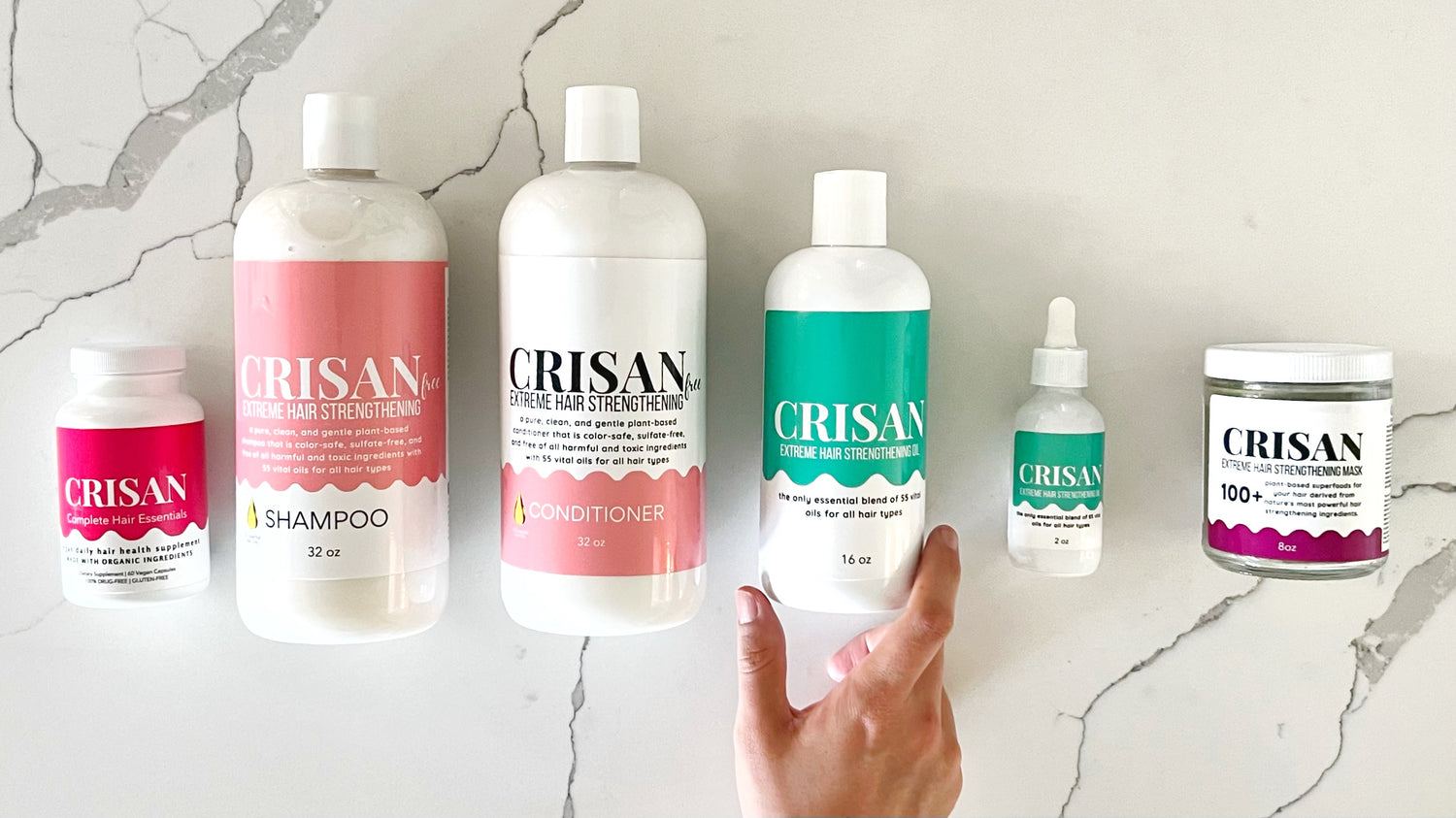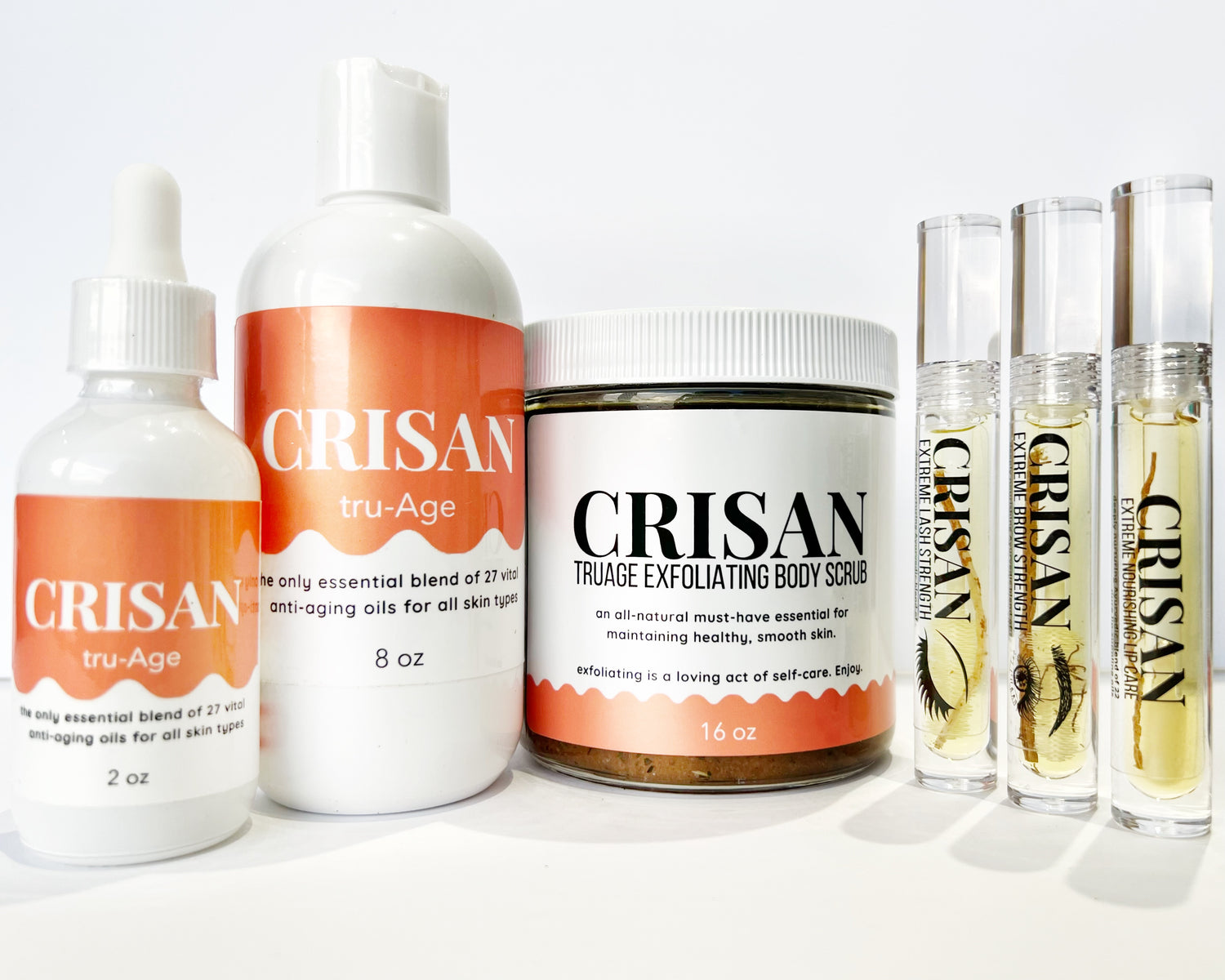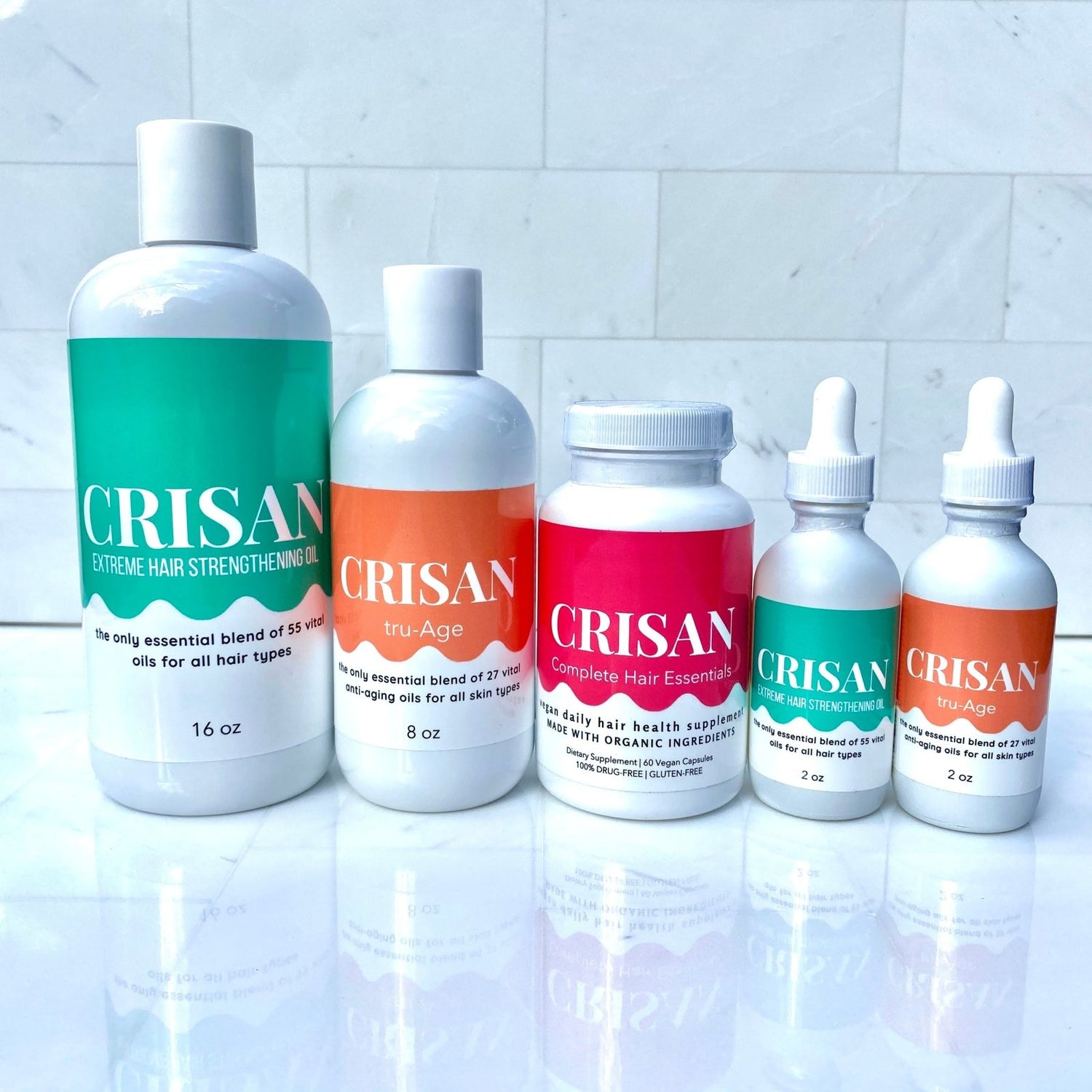Postmenopausal hair loss is an all-too familiar struggle for many women. If you're in your late 40s or beyond, and have experienced a noticeable decrease in the volume of your hair, you are not alone and the reason that we at CRISAN want so badly to address this topic has everything to do with your quality of life. We believe that all women in every phase of life should love their hair and feel beautiful in the body that God gave them. In order to feel beautiful and healthy, we need to take every possible precaution to understand our bodies and protect the hair we have. We should also encourage healthy new growth when possible.
The cause of postmenopausal hair loss is related to the hormone shifts that occur during menopause. Estrogen levels drop drastically during this time, which can result in greater production of male hormones – androgens - such as testosterone. This increase in testosterone has been connected to a decrease in hair density on the scalp. In addition, other hormonal changes can contribute to hair loss, such as the decrease of thyroid hormones. Thyroid hormones are required for the physiological growth and maintenance of hair follicles.
Fortunately, there are steps you can take to protect your hair from the effects of postmenopausal hair loss.
Firstly, a study published in June of 2020 found that there are many things we can do for ourselves to help prolong the quality of our hair. It states that sufficient sleep, no alcohol consumption, avoiding tight ponytails and other tight hairstyles, and controlling scalp sebum were attributed to a delay or avoidance in female pattern hair loss*.
Secondly, a visit to your doctor or dermatologist is wise. Hormone tests and other assessments may be done in order to determine the precise cause of your hair loss. Your doctor may also be able to provide medication that can block testosterone and other hormones from having an effect on your hair follicles, or recommend treatments such to stimulate new growth in thinning areas.
At CRISAN we recommend treating the problem before it starts and supporting yourself through every stage of life. Internal hair health supplements such as the Complete Hair Essentials Follicle Support are preservative-free and help to provide your body with essential nutrients to help support hair health and recovery.
In addition, lifestyle changes can make a big difference when it comes to postmenopausal hair loss. Eating a healthy, balanced diet full of fruits and vegetables as well as lean proteins can help slow down the rate of thinning or baldness. Simple dietary meals such as this one shown by Ariana (the owner of CRISAN and her family) have changed the lives and wellbeing of countless women around the world. Additionally, incorporating scalp massage into your daily routine can stimulate blood flow to your hair follicles, promoting healthier strands.
Finally, protecting your hair from heat styling tools is important, as these can damage hair and lead to further breakage. It is easier to prevent hair breakage than it is to fix a problem after it happens. Try drying your hair with a microfiber towel, and wearing protective styling such as braids or updos wrapped in silk when you sleep. It may also be helpful to switch to a gentle shampoo specifically designed for this type of hair loss in order to keep your strands nourished.
Postmenopausal hair loss can be a difficult reality to face, but you don’t have to go through it alone. By talking to your doctor and making changes in your lifestyle, you can take steps towards protecting your hair from the effects of menopause. With the right care, you can maintain healthy and beautiful locks for years to come!
Citations:
*Yi Y, Li X, Jia J, Guy Didier DN, Qiu J, Fu J, Mao X, Miao Y, Hu Z. Effect of Behavioral Factors on Severity of Female Pattern Hair Loss: An Ordinal Logistic Regression Analysis. Int J Med Sci. 2020 Jun 27;17(11):1584-1588. doi: 10.7150/ijms.45979. PMID: 32669961; PMCID: PMC7359394.


